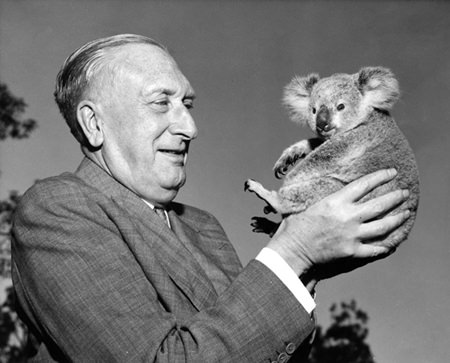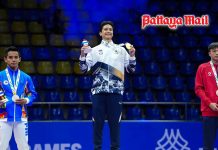If you type the words “festival overture” into the search panel of your web browser it will probably come up with the three most popular concert overtures ever written. They are the Academic Festival Overture by Brahms, a jolly piece written during the summer of 1880 as a token of gratitude to the University of Breslau, which had awarded him an honorary doctorate degree. You’ll probably see a reference to the Festive Overture by Shostakovich and there will almost certainly be a mention of Tchaikovsky’s 1812 Overture, which incidentally you can hear in its full splendour at Pattaya’s Tiffany Show Theatre next Saturday, 9th April.
Please Support Pattaya Mail
You might think that the word “overture” is a rather curious choice for these pieces. It comes from the French word ouverture meaning “opening” and was traditionally a short orchestral piece played before an opera to generally set the scene and give the audience time to settle down. By the end of the eighteenth century popular opera overtures were often played as separate items in a concert programme.

During the early nineteenth century, composers such as Beethoven and Mendelssohn began to use the word “overture” for a stand-alone orchestral concert piece and many other composers started to do the same thing. These concert overtures were nearly always fairly short single-movement works invariably with some kind of literary, historical or descriptive associations. Some were written for specific celebratory occasions.
This is how Walton’s Johannesburg Festival Overture came into being. The composer was at the peak of his musical career in Britain when he received a request to write a work for the celebrations surrounding the seventieth anniversary of Johannesburg. The commission came from the impresario Ernest Fleischmann, the Musical Director of the Johannesburg Festival Committee who also asked that Walton include some African themes in the music.
William Walton (1902-1983): Johannesburg Festival Overture. National Youth Orchestra of Scotland cond. Michael Francis (Duration: 7:34; Video 720p HD)
The work dates from 1956 and unlike the slightly later Second Symphony, which received mostly negative reviews, this is more straightforward with lively melodies and an attractive rhythmic drive. Walton was a successful composer of film music, and his fine orchestration skills are much evident in this entertaining work. It’s scored for large orchestra with many percussion instruments that include tom-toms, clave, castanets and maracas but I have to admit that the African themes, which were requested in the commission, are not immediately obvious.
The overture is one of his lighter and more approachable works, described by the composer as “a non-stop gallop…slightly crazy, hilarious and vulgar”. These young Scottish musicians give an impressive account of the overture, helped by fine conducting and a superb sound recording.
Although by the 1960s, interest in Walton’s music had started to wane and was considered somewhat old fashioned, he was nonetheless awarded a knighthood. I remember hearing the first performance of his rather opaque Second Symphony on the radio. It was all a bit heavy going but at the end, just before the tentative applause someone in the audience yelled “Rubbish!” which at the time struck me as downright rude, especially as the composer was probably in the audience too.
Peter Tchaikovsky (1840-1893): Festival Overture on the Danish National Anthem. State Youth Orchestra of Armenia cond. Sergey Smbatyan (Duration: 11:52; Video 720p HD)
This one of Tchaikovsky’s lesser-known works although he thought rather highly of it and considered it musically superior to the 1812 Overture. The music is based on the same national anthem that is used in Denmark today, although no one seems to know who actually composed the original melody.
Like the Walton overture, this was also a commission. It came in 1866 from Nikolay Rubinstein, the principal of the Moscow Conservatoire where Tchaikovsky was working at the time. The heir to the Russian throne, later to be crowned Tsar Alexander III of Russia was planning to visit Moscow with his new Danish bride, Princess Dagmar of Denmark. It was deemed appropriate that Tchaikovsky should be commissioned to write a festival overture based on the melody of the Danish national anthem.
Despite the celebratory mood of the occasion this is quite a complex piece but bears the unmistakable hand of Tchaikovsky. Towards the end the mood lightens and we hear the Danish national anthem belted out heroically by the full orchestra very much in the 1812 style. It must have gone down a treat with the Danish Princess because Tchaikovsky received a gift of gold cuff links from the tsar-to-be as a token of royal gratitude.
The conservative yet somewhat unrefined Alexander III remained enthusiastic about Tchaikovsky’s music all his life and in 1885 awarded the composer a state pension, which Tchaikovsky probably appreciated more than the cuff links.
 |
 |
 |





